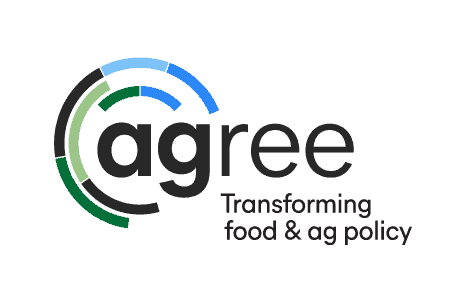The Ag Data Privacy Debate in 10 Statements
19 September 2018September 19, 2018
AGree was pleased to host one of the most thought-provoking discussions to date regarding agricultural data and the implications for farmer profitability and privacy, as well as the potential broader societal benefits of aggregated data analysis.
Our panel of five experts did a fantastic job representing the diversity of views and considerations to weigh when unpacking data collection and analysis issues. Even though I have worked on this issue for over five years with AGree’s Conservation and Crop Insurance Task Force (CCITF), , I was captivated by the discussion and inspired by the new insights that emerged.
I’d like to share ten comments from the panelists and attendees that really resonated with me:
- Private ag data collection platforms and data analysis are still in their infancy, but industry has embraced it with remarkable success. USDA must also embrace ag data analysis or be left behind. –Todd Janzen, President, Janzen Agricultural Law, LLC
- Trust is paramount. USDA takes great care to ensure the integrity of our data and ability to keep data secure. The key is to be able to assure producers of the protection of their privacy. –Kevin Barnes, Associate Administrator, USDA National Agricultural Statistics Service (NASS)
- Some of the privacy protections in the farm bill actually give farmers more protection than the rest of us have – and some of that data is already publicly available elsewhere. So, the farm bill privacy protections actually set a unique standard. –Laurie Ristino, Visiting Scholar, George Washington University Law School
- Farmers are offended by the idea of having their data used for exploitative purposes. Everyone wants to know everything about their operations these days, but if farmers don’t have the privacy to innovate, they won’t do it. Competition between farms is serious and data should be protected to enable farmers’ secret sauce: innovation. –Laura Knoth, Executive Director, Kentucky Corn Growers Association and Kentucky Small Grain Growers Association
- The natural experiment that’s occurring with data is only valuable on a large-scale if it’s aggregated. Data has value to farmers individually, but when you put it together you can learn important insights that have regional and even global value. –Bruce Sherrick, Professor of Land Economics, University of Illinois
- In response to a question about the many private entities collecting data: There is an ag data “land rush,” in which companies are racing to compete for acres, which may not produce the highest quality data, but that will eventually settle out. –Todd Janzen
- If entities are grabbing and aggregating data without calibrating it, that data might not be accurate. USDA would like to utilize data from all of these sources, but we have to validate the accuracy, which is a major challenge. –Kevin Barnes
- In response to discussion about whether farmers should be paid for data from their farms: There is a difference between value and price, as well as between price and cost. For example, rarely do farmers regret paying (nothing) for extension service data. The public benefits of data are not always aligned with direct compensation. –Bruce Sherrick
- The important question is: how do we use our resources more effectively to produce more food on the same amount of arable land with limited resources? Answer: through big data and being smarter about leveraging the data we already have. –Laurie Ristino
- One of the problems we have with USDA is antiquated privacy language. USDA puts handcuffs on the datasets that could hold potentially helpful insights that would deliver value back to producers. We need to find a happy medium between releasing data that can help farmers and keeping it safe. –Dave Gagner, Senior Director of Government Relations, National Fish and Wildlife Foundation
I’m pleased that the discussion left participants with both a sense of the significance of farmer privacy concerns and also the remarkable potential to increase farmer profitability, improve farm policy, and advance environmental protections.
There is no doubt in my mind that we can overcome the challenges to seize the opportunities. AGree and our CCITF partners are grateful to U.S. Sens. Amy Klobuchar (D-MN) and John Thune (R-SD) for introducing the Ag Data Act of 2018, which includes many CCITF recommendations. Provisions of the Ag Data Act were included in the Senate farm bill and remain part of the ongoing negotiations.
The data privacy panel was the first in a series of discussions that AGree is hosting this fall. Please join us on Thursday, September 27 at 11:30 am when we host a luncheon discussion on Harnessing (Big) Data for Small Farmers.
AGree Discussion Series: Agriculture Data Improving Productivity while Protecting Privacy
Listen in on a thought-provoking discussion regarding agricultural data and the implications for farmer profitability and privacy.

